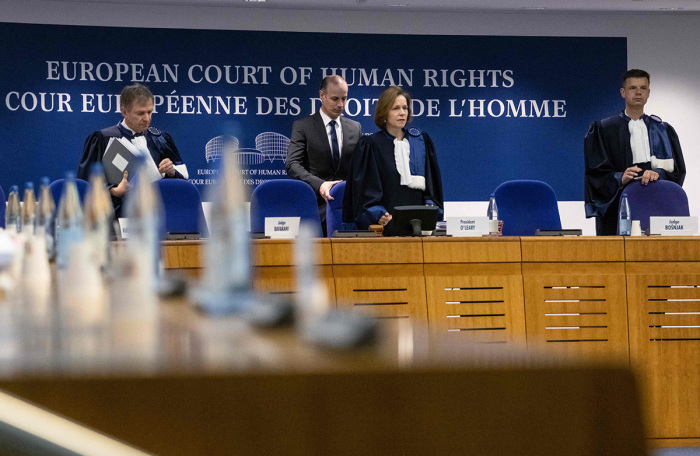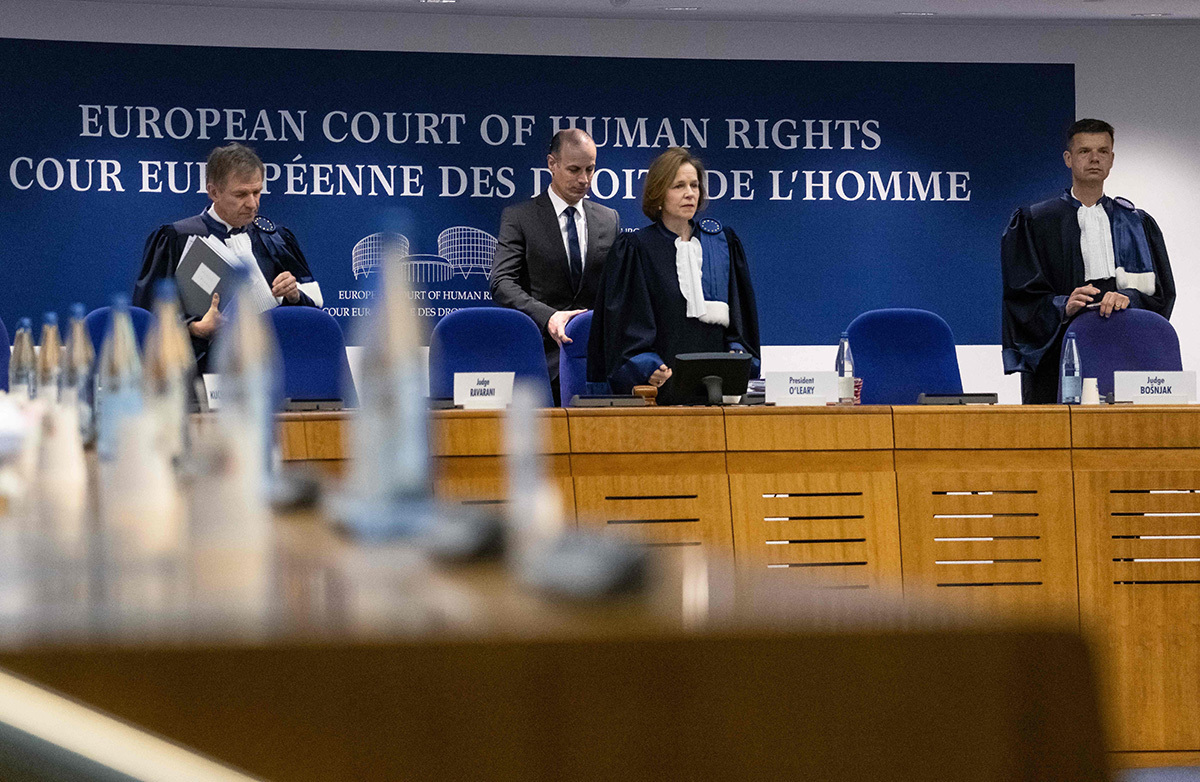
A woman who was 15 weeks pregnant when Poland’s top court ruled against abortion for fetal defects has won her case at the European Court of Human Rights, which found that she was denied her rights due to legal uncertainty that forced her to travel abroad for the procedure.
The court’s ruling, delivered last week in the case of A.R. v. Poland, determined that the Polish government violated Article 8 of the European Convention on Human Rights, which guarantees the right to private and family life.
The woman, identified only by her initials, argued that she had been forced to seek an abortion in the Netherlands because of confusion created by a months-long delay in implementing the Constitutional Tribunal’s October 2020 ruling that struck down abortion in cases of fetal abnormality.
At the time of the ruling, Poland’s 1993 abortion law still permitted termination in limited cases, including when the fetus suffered from serious and irreversible defects. Although the tribunal declared those grounds unconstitutional on Oct. 22, 2020, the government did not publish the judgment in the Journal of Laws until Jan. 27, 2021 creating what the court described as legal confusion.
A.R. received the results of prenatal tests on Nov. 5, 2020, confirming that the fetus had trisomy 18, a severe genetic disorder. Uncertain how long the old law would remain in effect and fearing sudden enforcement of the tribunal’s decision, she chose to travel to a clinic in the Netherlands and ended her pregnancy on Nov. 12, 2020.
She later took her case to Strasbourg, arguing that Poland’s delay and failure to clarify the law had denied her the ability to make an informed decision with proper care at home.
Judges ruled that the prolonged ambiguity left her in a state of "uncertainty” about her legal rights and exposed her to additional stress. They ordered Poland to pay A.R. 1,495 euros (roughly $1,741) in costs and 15,000 euros (around $17,500) in damages for emotional distress.
The ECHR did not rule on whether the abortion itself should have been allowed; instead, it focused on the procedural failures of the Polish state during the transition from one legal framework to another.
The Polish government argued that the prior law remained valid until the tribunal’s ruling was officially published and that A.R. had not been denied a termination by any Polish provider. The court emphasized how unclear the law had become in real-time, even for doctors, and maintains that the state failed to provide clear and workable rules in a matter with serious consequences for individual rights.
This is the second such judgment against Poland.
In M.L. v. Poland, ruled in December 2023, the court also found a violation of Article 8 involving a woman who had to travel abroad after learning of severe fetal abnormalities. In that case, the judges noted that the Constitutional Tribunal had not been legally constituted, referencing irregularities in judicial appointments.
The ruling in A.R. reiterated concerns over the legitimacy of the tribunal’s bench and its role in reshaping the country’s abortion laws, according to ADF International, which intervened in the case.
The ruling does not establish a right to abortion under the European Convention on Human Rights but instead criticizes the Polish state’s handling of a fundamental legal shift. In its opinion, the court stressed that national authorities must provide timely and coherent legal transitions in areas of significant ethical debate, particularly where rights are implicated.
“With this judgment the European Court of Human Rights has interfered in a matter that belongs squarely under Polish jurisdiction. Poland has both the sovereign prerogative and the duty to protect all innocent human life," said Dr. Felix Böllmann, director of European advocacy for ADF International.
"Poland’s Constitutional Tribunal acted courageously to protect children with disabilities from discrimination before birth — a goal fully consistent with international human rights law."
Poland’s abortion law is among the strictest in Europe. The 2020 tribunal decision made abortion legal only in cases of rape, incest or threats to the mother’s life.
A newly elected centrist government has proposed reforms, including legalizing abortion on request up to 12 weeks, but has been able to make little progress due to parliamentary gridlock and resistance from President Karol Nawrocki.
As of November 2025, the near-total ban remains in effect.
The ruling becomes final unless either side requests a review by the Grand Chamber within three months.
News Source : https://www.christianpost.com/news/european-court-rules-against-poland-in-womans-abortion-case.html
 Your post is being uploaded. Please don't close or refresh the page.
Your post is being uploaded. Please don't close or refresh the page.





